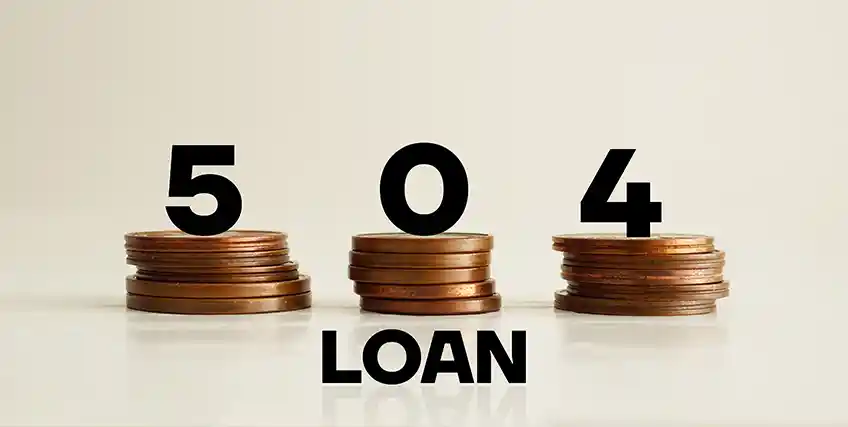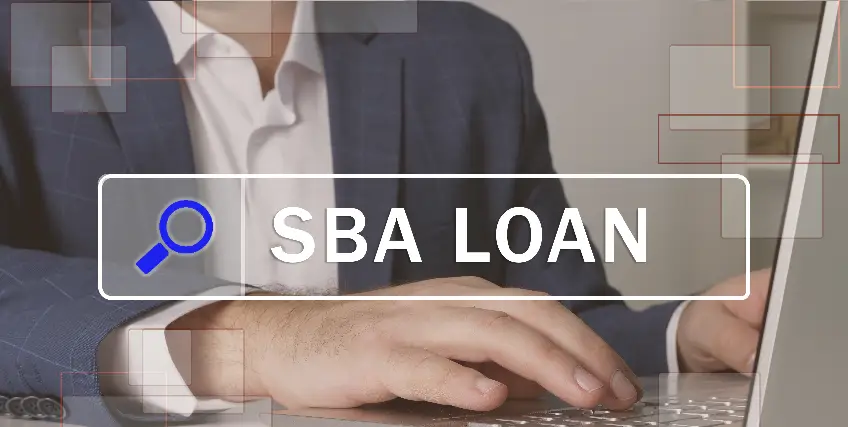Navigating SBA 504 Loans for Commercial Real Estate in 2026
December 02, 2025 | Last Updated on: December 02, 2025

Commercial real estate remains one of the biggest investments for small business owners in the United States. As we step into 2025, many small business owners are now exploring stable financing options. That’s where SBA 504 loans come into action. These SBA commercial real estate loans provide fixed-rate funding for commercial properties without draining your working capital.
Today, more business owners are choosing to buy their own office space or warehouse instead of renting it out. Owning a space gives them control over their location and helps them save money over time. Additionally, it also lets them build long-term value for their business. Unlike leasing, which locks businesses into fluctuating terms and rising costs, purchasing a property with SBA commercial real estate loans helps build equity and long-term value.
In this article, we will explore what an SBA 504 loan is, how it works, what it can be used for, who is eligible, and its pros and cons. We will also discuss the structure of these SBA 504 loans, interest rates, and why it’s a top choice for commercial real estate loans for small business owners in 2025.
What is an SBA 504 Loan
An SBA 504 loan is a long-term business financing solution backed by the U.S. Small Business Administration. This loan program helps small businesses buy or upgrade fixed assets like real estate or equipment. The SBA 504 business loan structure includes a Certified Development Company (CDC), a private lender, and the borrower.
However, understanding how the SBA 504 loan works is important to unlock long-term value for your business. When compared to conventional loans, the SBA commercial real estate loan is structured to reduce your upfront burden by increasing access to capital. Therefore, it’s a smart approach for those looking to invest in fixed assets like real estate with predictable returns.
The structure of the SBA 504 loan includes:
- The CDC funds 40% of the project.
- A private lender contributes 50%.
- And, the borrower provides a 10% down payment.
This structure of an SBA commercial real estate loan makes it easier for borrowers to finance commercial property without tying up too much cash flow. However, businesses that qualify for these loans must meet the SBA size standards that define what counts as a small business in their industry.
How Can You Use an SBA 504 Loan
SBA 504 loans are designed to help small businesses grow through fixed asset purchases like real estate. These loans can be used for:
- Buying Commercial Real Estate: These loans can be used to buy various existing buildings, warehouses, and office buildings.
- Renovating Facilities: These SBA loans to buy commercial real estate can be used by small business owners to upgrade their current space.
- Purchasing Land: These loans can be used for purchasing land for development or expansion.
- Acquiring Long-Term Equipment: If you need to purchase equipment for commercial property, these SBA commercial real estate loans are the best option.
- Refinancing Existing Debt: You can refinance existing SBA commercial real estate loans under certain 504 loan requirements.
Keep in mind that nonprofit entities are not eligible for SBA 504 loans; however, they may qualify for other programs offered by the Small Business Administration. Also, these loans cannot be used for working capital, inventory purchases, or consolidating debt.
Hence, these SBA loans are strictly limited to fixed assets like real estate, land, and long-term equipment.
Why SBA 504 Loans May be a Good Option for Commercial Real Estate in 2025
In an economy where every dollar counts, businesses must weigh risks against long-term benefits. Real estate costs are often a barrier, but SBA 504 loans help clear that hurdle. You can easily spread payments across decades to make expansion more attainable.
Therefore, these loans can also be called SBA commercial real estate loans because they are specifically designed to help businesses buy, build, or improve the property they will occupy.
The SBA 504 loan program is a solid option for financing commercial real estate due to its stability and flexibility. Here are the reasons why:
- Fixed interest rate: These loans offer a fixed interest rate that helps borrowers avoid unpredictable monthly payments.
- Long repayment terms: SBA-approved loan terms can go up to 10, 20, and 25 years.
- Small down payment: These SBA commercial real estate loans require a smaller down payment that preserves working capital for operations.
- Loan amount: SBA 504 loans can finance up to $5 million for most businesses. It can go up to $5.5 million for manufacturers or projects that meet energy efficiency goals.
All these features of SBA commercial real estate loans make it easier for startups and expanding businesses to own properties without draining cash flow. Additionally, the predictable nature of these loans allows businesses to plan more accurately over the long term.
Eligibility Requirements for SBA 504 Loans
Small business owners need to meet SBA 504 loan eligibility requirements to ensure that their business qualifies for this loan program. These loan requirements are in place to help to make sure the loan benefits genuine small businesses that aim to grow and create jobs.
Before applying for the SBA commercial real estate loan, it’s important to review each loan requirement carefully to avoid delays in approval. To be eligible for this loan, you must:
- Operate for-profit businesses in the U.S.
- Have a tangible net worth of less than $20 million.
- Show average income below $6.5 million after federal income taxes for the last two years.
- Use at least 51% of the property for your own operations such as occupancy requirements.
- Support job creation, community development, or energy efficiency.
All these conditions make the SBA commercial real estate loan accessible to many types of businesses, including startups and expanding companies.
How SBA 504 Loan Structure Works
The SBA commercial real estate loan structure allows shared risk between lenders and the SBA-guaranteed CDC. This unique structure is designed to encourage lender participation while reducing risk for all parties.
This shared responsibility gives small businesses better access to affordable long-term financing. Let’s take an example on a $1 million loan amount.
- Here the lender provides $500,000.
- The CDC, backed by the Small Business Administration, covers $400,00.
- The borrower contributes a $100,000 down payment.
This structure of the SBA 504 loan improves lender confidence and increases small business access to property ownership. Also, it reduces exposure to default risk, which makes it easier for lenders to approve the loan.
Interest Rates and Fees for SBA Commercial Real Estate Loans 2025
As of 2025, SBA 504 loans offer a competitive fixed interest rate. These interest rates are typically lower than those for conventional business loans or lines of credit.
Fee details for SBA commercial real estate loans for Fiscal Year 2025 include:
- Upfront SBA guaranty fee: This fee is waived for loans up to $1 million, helping small businesses lower upfront costs.
- Annual service fee: This ongoing fee is applied to the unpaid principal and included in the borrower's monthly payment.
- Closing costs: May include expenses for appraisals, legal services, and title work. Many of these costs can be rolled into the total loan amount, reducing the need for cash up front. In total, the fees and closing costs typically equal approximately 3% of the debt, and this amount may be financed with the loan.
The combination of fixed interest and long repayment terms makes this loan program a practical option for businesses investing in fixed assets. The interest rates for SBA 504 loans are fixed and are typically tied to the 10-year U.S. Treasury rates, which can vary over time.
SBA Commercial Real Estate Loan Application Tips
Applying for an SBA commercial real estate loan can feel overwhelming, especially for new or growing businesses. However, breaking the process into manageable steps helps improve your chances of approval.
To apply for SBA 504 loan successfully, consider these best practices:
- Work with an SBA-approved lender and experienced CDC.
- Prepare a solid business plan that highlights job creation and growth.
- Ensure a strong credit score and documentation for eligibility.
- Understand your occupancy obligations: at least 51% for existing buildings.
The 504 loan application process is detailed, but manageable with guidance. Keeping all documentation organized and having clear growth goals will ease the process.
Conclusion
Taking control of your business location provides a strong foundation for growth. SBA 504 loans empower you to do just that, combining flexibility, support, and long-term financial predictability. Whether you're aiming to scale or stabilize, now is a strategic time to act.
Buying commercial real estate is a milestone for many small businesses. The SBA commercial real estate loan gives you a reliable, fixed-rate path to ownership. With longer repayment terms, low down payments, and access through SBA-approved lenders and CDCs, it’s a standout choice. If you're expanding or considering refinancing, SBA 504 loans are designed to support business financing.
If still not sure, Reach out to an SBA-approved lender or CDC for expert advice on the best loan options for your business. Ownership could be closer than you think.
Frequently Asked Questions About SBA Commercial Real Estate Loans
Can I use an SBA commercial real estate loan to buy investment property?
You can use an SBA commercial real estate loan to buy an investment property, however, it may not always be the best fit. These loans are more aligned with owner-occupied real estate. Hence, it could be helpful to review your plans with a lender or CDC to explore what’s possible.
What kind of businesses might qualify for SBA 504 loans?
Many for-profit businesses seem to meet the general criteria, especially if they operate in the U.S. and fall within certain financial limits. However, qualification might depend on multiple factors beyond just size and income. Therefore, checking with a CDC could offer more clarity.
Can SBA 504 loans be used for refinancing?
SBA 504 loans can be used for refinancing in some situations. However, they need to follow the rules under SBA 504. Hence, not every debt might qualify for refinancing.
Are SBA 504 interest rates always fixed?
SBA 504 interest rates are generally referred to as fixed, which could make budgeting easier for many borrowers. However, since the rate is tied to market benchmarks like the U.S. Treasury, the final rate might vary depending on when the loan closes. So, locking in a rate might not be guaranteed upfront.
What does a Certified Development Company (CDC) actually do?
A CDC generally acts as the intermediary that handles the SBA portion of the loan. They assist with paperwork, check your eligibility, and submit the SBA 504 loan application. Since they play a central role, choosing one with experience could make the process feel more manageable.
Frequent searches leading to this page
Related Articles
Term Loans are made by Itria Ventures LLC or Cross River Bank, Member FDIC. This is not a deposit product. California residents: Itria Ventures LLC is licensed by the Department of Financial Protection and Innovation. Loans are made or arranged pursuant to California Financing Law License # 60DBO-35839




